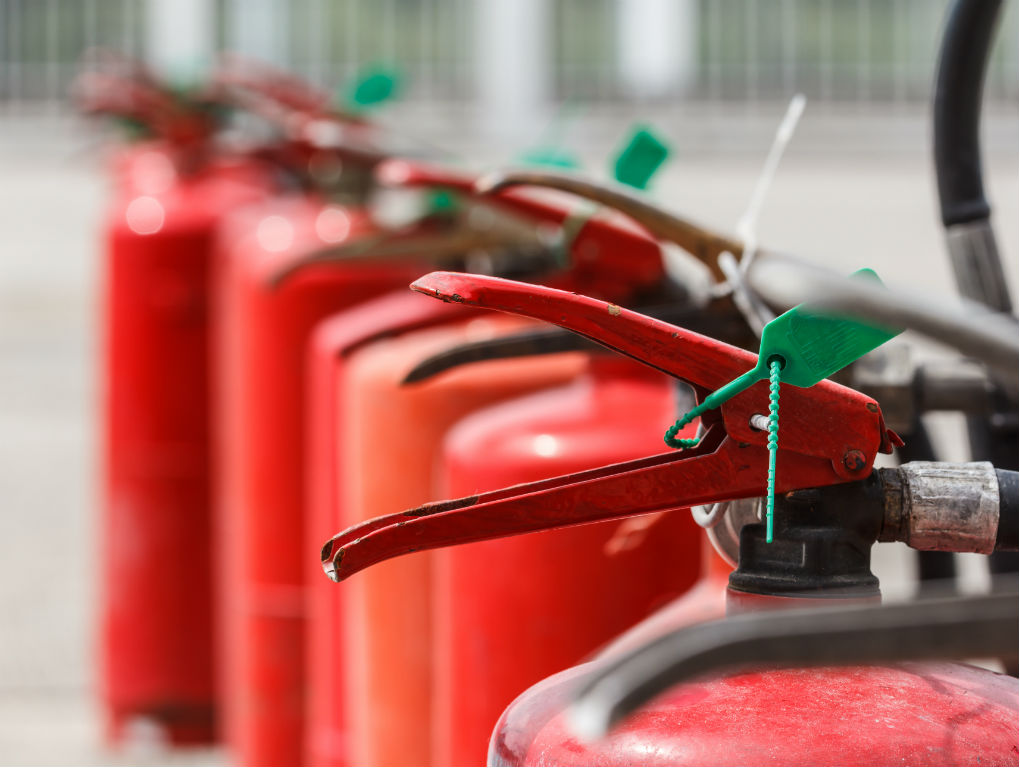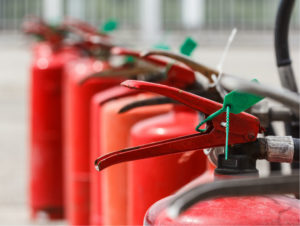The effects of fire can be devastating and long lasting and regular fire safety checks on your property are a must. Homeowners and businesses alike should make every effort to reduce the chance of a fire occurring in the first place and reduce its ability to spread quickly, should one happen.
Here are a few simple steps to minimise the chance of fire destroying property and taking lives. The precautions are primarily aimed at business owners but many are also worthwhile reading for homeowners. After all, it’s better to be safe than sorry:
Preventative steps
- Ensure fans and air conditioning are turned off and unplugged at the end of the day and the property is properly secured.
- Check electrics are in-line with legislation.
- Undertake PAT tests, including testing fire extinguishers every year.
- Ensure fire alarms are regularly tested
- Mitigate damage as much as possible. Make sure cooking and kitchen extractors and ducting are clean inside and free of an accumulation of grease, as this may help a fire to spread.
- Don’t overload electrical sockets and extension leads.
Review your Business Risk Assessment
- Ensure you have an up-to-date fire safety risk assessment completed by a competent person.
- Check you have measures in place to ensure that all persons have reached a place of safety in the event of a fire. You may need to put additional measures in place for disabled and other vulnerable persons and also to help those who are monitoring the evacuation know that everyone is out of the building safely.
- Carry out a routine fire drill, assess how well the evacuation went and put any lessons learned to good use.
- Ensure all necessary improvement work is carried out and with the right degree of urgency.
Business Continuity Plan Review
- Make sure you have an up-to-date Business Continuity Plan and copies are also held off-site.
- Ensure copies of vital computer data are kept in a suitable secure place away from the premises.
- Encourage your employees to report to management anything which may increase the chance of a fire occurring.
Remove and secure waste material
- Keep your premises as clean and tidy as possible at all times.
- Remove combustible waste materials at the end of each working day or more frequently if necessary to avoid opportunistic arson attacks.
- Ensure waste is put in bins or skips securely sited at least 10m from the buildings and at least 2m from the site perimeter or in lockable metal containers located as far away from doors and windows, canopies or overhanging roofs as possible.
- Securely lock away flammable liquids and gases.
Fire Doors and Escape Routes
- Ensure all fire exit doors and fire escape routes are free from obstruction and are not being used for storage (particularly combustible items).
- Make sure emergency lights are functioning.
- Do not allow internal fire resisting doors to be wedged open and ensure they are functioning properly and are free from damage.
- Make sure that access doors serving any vertical service shafts are kept properly closed.
Sprinkler Systems and Fire Fighting Equipment
- Any automatic sprinkler systems should be in full working order and spare parts available.
- Provide fire safety training, including fire extinguishers, to staff
Talk to the professionals at Hine Insurance
As well as taking the necessary steps to mitigate fire risks, arranging the right level of insurance cover is vital for homeowners and businesses alike.
The team at Hine will work with you to arrange a robust insurance policy that will protect both your premises and its contents and allow you to get back on your feet as quickly as possible. Call the team today on 0161 438 0000.




